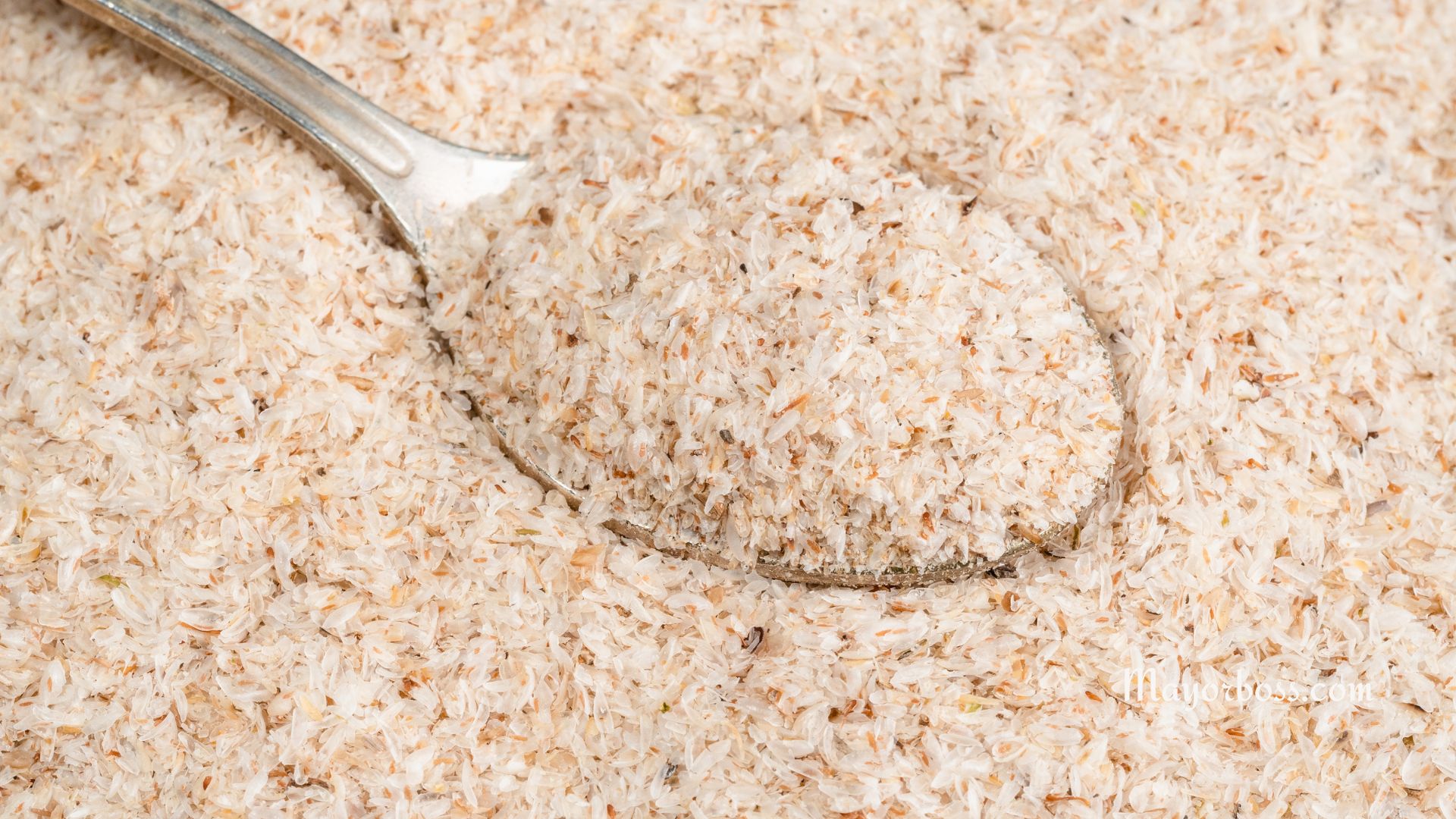6 Benefits of Psyllium Husk
As it turns out, the benefits of psyllium husk have been recognized for centuries. This plant-based dietary fiber has an array of health advantages that may surprise you.
What Are The Benefits of Psyllium Husk?
1. Promotes Digestive Health
Particularly, psyllium husk is good for promoting digestive health.
It is basically a form of fiber produced from the husks of the Plantago ovata plant’s seeds.
When consumed, it expands, forming a gel-like mass in your gut.
This may help in alleviating constipation by softening stools and increasing their volume.
Some studies suggest that this high fiber content may improve overall gut health.
2. Helps Lower Cholesterol
It might also be worth noting that psyllium husk is believed to have heart health benefits due to its ability to lower cholesterol levels.
Specifically, it binds to fats and bile acids, helping them to be excreted from your body.
As a result, your body requires more cholesterol, which it pulls from your blood, potentially reducing your overall cholesterol levels.
3. Assists in Blood Sugar Regulation
The benefits of psyllium husk don’t stop there.
It also appears to be beneficial for regulating blood sugar levels.
Research has found that this fiber supplement can slow down the digestion of food, which may play a significant role in controlling sugar levels, particularly for people with diabetes.
4. Aids Weight Loss
Moreover, psyllium husk has been touted as a weight control tool.
This is due to its ability to make you feel fuller for longer, thus helping to reduce food consumption.
Although individual results may vary, incorporating psyllium husk into your diet may potentially be effective in helping you lose weight!
5. Promotes Skin Health
It might also be beneficial for your skin.
Some people have reported improved skin health after including psyllium in their diet.
It is also thought that psyllium husk helps to remove toxins from the body, potentially resulting in clearer, healthier skin.
However, in particular, for this benefit, more research needs to be conducted.
6. May Reduce the Risk of Heart Disease
Psyllium husk is full of heart-healthy fiber.
Hence, regular intake is associated with a lower risk of heart disease.
As per Healthline, psyllium may lower blood pressure, improve lipid levels, as well as strengthen your heart muscle function.
While more research is needed, initial studies have demonstrated a positive correlation between psyllium husk and heart health.
Summary
Psyllium husk is a powerful, plant-based supplement packed with numerous health benefits.
It’s known for promoting digestive health, lowering cholesterol, regulating blood sugar, aiding in weight loss, promoting skin health, and potentially reducing heart disease risk.
As a versatile and natural supplement, it’s a worthwhile addition to a balanced diet.
Frequently Asked Questions About Psyllium Husk
Psyllium husk, commonly known as ispaghula, is basically the outer shell of the seeds of the Plantago ovata plant. It’s a type of dietary fiber that expands in your gut when you consume it, forming a gel-like mass.
It might also be beneficial to know that psyllium husk is quite versatile and can be incorporated into your diet in various ways.
Yes! It can be mixed into your breakfast cereal, yogurt, or smoothie.
It can also be used as a baking ingredient to add more fiber to your recipes.
However, because psyllium husk is highly absorbent, it’s important to drink plenty of water when you consume it.
While the benefits of psyllium husk are numerous, some people may experience mild side effects such as gas, stomach pain, or bloating.
In some rare cases, people might have an allergic reaction to psyllium husk.
Therefore, it is always best to start with a small amount to see how your body reacts and consult with a healthcare provider if you have any concerns.
Yes, psyllium husk can interfere with the absorption of certain medications due to its high fiber content.
Thus, it is always advisable to take it at least two hours before or after any medication.
People with bowel obstructions or spasms, difficulty swallowing, or any upcoming surgery should avoid taking psyllium husk.
Also, it is not recommended for people who have had difficulty with bowel movements in the past.
If you have any of these conditions, you should certainly consult with a healthcare provider before using psyllium husk.
In general, it is safe for most people to take psyllium husk every day.
In fact, it is recommended to take one to three times daily. It’s a natural supplement that has been recognized for its safety and effectiveness when used properly.
However, like any supplement, it’s always best to follow the recommended dosage and consult with a healthcare provider if you plan to use it long-term.
Plus, since it’s a fiber supplement, it’s crucial to ensure you’re also drinking enough fluids to help it work effectively and to prevent any digestive discomfort.







